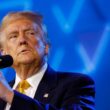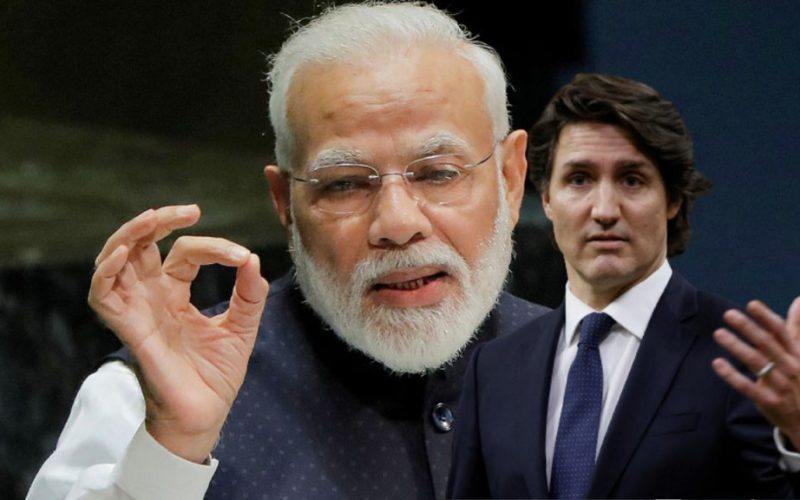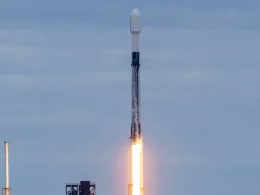Relations between India and Canada took a sharp downturn last year, and tensions have recently escalated further. On Monday, both countries expelled six diplomats each in a tit-for-tat response over the June 2023 assassination of a Sikh activist in Canada.
Canada’s Foreign Minister Mélanie Joly announced that six Indian diplomats, including the high commissioner, were being expelled after police found evidence linking Indian government agents to a campaign targeting Canadian citizens. In response, India’s foreign ministry expelled six Canadian diplomats, including the acting high commissioner and deputy high commissioner, giving them until Saturday to leave the country.
India had earlier rejected a Canadian message on Sunday which named its ambassador as a “person of interest” in the assassination. A Canadian official confirmed that Canada expelled the diplomats first, before India decided to withdraw theirs.
Joly explained that Canada took this step after police investigations linked the Indian agents to criminal activities, but India refused to cooperate by waiving diplomatic immunity. She stressed that Canada made the decision with care, only after gathering strong evidence. She also called on India to support the ongoing investigation, emphasizing that it was in both countries’ best interests.
What has come as a major surprise is what Mike Duheme, the commissioner of the Royal Canadian Mounted Police, said that Indian agents were connected to other homicides and violent acts in Canada, though he did not provide specifics. He noted that police had issued multiple warnings to members of the South Asian community, particularly those involved in the Sikh independence movement, after uncovering credible threats. Attempts to engage Indian law enforcement have been unsuccessful.
Assistant Commissioner Brigitte Gauvin expressed deep concern, pointing out that diplomats are supposed to represent their countries’ interests, not be involved in criminal activities, a violation of the Vienna Convention on Diplomatic Relations.
India, however, has dismissed these accusations as unfounded.

The Bitterness
Tensions between Canada and India have been strained for years, largely due to disagreements between Prime Minister Justin Trudeau and Indian Prime Minister Narendra Modi over the issue of Sikh separatism.
Canada hosts the largest Sikh community outside of India, with approximately 770,000 people, or 2.1% of the population. A small portion of this community supports the idea of creating an independent Sikh homeland, separate from India. These supporters have provided financial resources and held unofficial referendums in Canada, actions strongly criticized by Indian authorities.
While Trudeau, like previous Canadian leaders, has affirmed support for a “united India,” he has resisted Indian pressure to crack down on Sikh separatist activities in Canada. Some Sikh Canadians argue that the push for an independent “Khalistan” is a peaceful movement for greater autonomy in India.
The strained relationship reached a breaking point in late 2023 when Trudeau publicly stated that Canadian authorities were pursuing “credible allegations” linking Indian government agents to the assassination of Sikh separatist leader Hardeep Singh Nijjar outside a gurdwara in Surrey, B.C., in June 2023. India rejected these claims as “absurd” and accused Canada of interfering in its internal affairs. This led both countries to expel each other’s diplomats.
February 2018 Incident
The tension was also evident during Trudeau’s 2018 visit to India, which was intended to strengthen relations and address long-standing issues around Sikh separatism. However, the trip turned controversial when it was revealed that Jaspal Atwal, a man convicted of attempting to murder an Indian politician in Canada, had been invited to events attended by Trudeau. While the invitation was not authorized by Trudeau himself, it created a diplomatic embarrassment.
Additionally, Trudeau and his family faced criticism for wearing traditional Indian attire during the visit, which was ridiculed both in Canada and internationally.
June 2023
In June 2023, Canadian Prime Minister Justin Trudeau’s national security adviser publicly named India as one of the top sources of foreign interference in Canada, a designation previously reserved for authoritarian states.
Earlier in the month, India’s foreign minister, S. Jaishankar, criticized Canada for allowing a float in a parade that depicted the 1984 assassination of then-Indian Prime Minister Indira Gandhi by her bodyguards. India viewed the float as glorifying violence by Sikh separatists.
Just two weeks later, on June 18, Sikh community leader Hardeep Singh Nijjar was shot dead outside his gurdwara in Surrey, B.C. Many in the Sikh community immediately labeled the killing as a politically motivated attack. Protests against Indian officials escalated throughout the summer, with the group Sikhs for Justice calling for demonstrations outside Indian consulates and even offering cash rewards for the home addresses of Indian diplomats.
September 2023
In a surprising development, Canada paused talks on a proposed trade deal with India in September. International Trade Minister Mary Ng also postponed a planned trip to India for October.
At the G20 summit in New Delhi, visible tensions emerged between Trudeau and Indian Prime Minister Narendra Modi. A week later, on September 18, Trudeau publicly revealed that Canadian intelligence agencies were pursuing “credible allegations” of a link between the Indian government and Nijjar’s murder. In retaliation, India restricted visa access for Canadians, a move that impacted the country’s wedding season. Visa services were only restored in November.
India also expressed concerns about the safety of its diplomats in Canada, despite earlier statements by Indian High Commissioner Sanjay Kumar Verma saying there were no safety issues. New Delhi labeled Canada a “safe haven for terrorists, extremists,” accusing it of hosting anti-India activities.
Sources stated that Canada had gathered intelligence, including communications involving Indian officials and diplomats in Canada, as part of its investigation into Nijjar’s assassination. Some of this intelligence reportedly came from an ally in the Five Eyes intelligence alliance.
October 2023
In October, India took the dramatic step of canceling diplomatic immunity for 41 Canadian diplomats and withdrawing security protection for their families. This effectively forced two-thirds of Canada’s diplomatic staff in India to leave the country. Canadian Foreign Affairs Minister Mélanie Joly condemned the move but vowed to continue discussions with India behind closed doors.
November 2023
In November, a U.S. court unsealed an indictment revealing a foiled murder-for-hire plot, allegedly orchestrated by an Indian diplomat, targeting a Sikh separatist earlier in the year.
American officials have alleged that the organizers behind the assassination plot that targeted Hardeep Singh Nijjar were also considering three additional assassinations in Canada, including Nijjar’s.
January 2024
In January 2024, the independent inquiry into foreign interference in Canada requested Ottawa to share any information regarding possible meddling by India in Canadian elections. New Delhi rejected the accusation, reiterating its long-standing claim that Canada allows Sikh separatists to interfere in India’s internal affairs.
March 2024
By March 2024, Bloomberg reported that the Indian government had given the U.S. a report acknowledging that Indian agents were involved in the U.S. murder plot. However, India claimed these operatives were acting independently as rogue agents. Around the same time, exclusive security footage obtained by CBC’s The Fifth Estate revealed the highly coordinated nature of the attack that resulted in Nijjar’s killing.
May 2024
In May 2024, it was reported that Canadian police had arrested several members of an alleged hit squad. Investigators believe this group was tasked by the Indian government to carry out Nijjar’s assassination.

The United States In The Mix
The pro-Khalistan movement remains a contentious issue between India and Canada. New Delhi has consistently criticized Prime Minister Justin Trudeau’s government for being lenient on supporters of the Khalistan movement, which is banned in India but has significant backing among the Sikh diaspora, particularly in Canada.
India has repeatedly urged countries like Canada, Australia, and the U.K. to take legal action against Sikh activists supporting Khalistan. Canada, where Sikhs make up nearly 2% of the population, has been a primary focus of India’s concerns.
Meanwhile, the U.S. State Department confirmed on Monday that an Indian inquiry committee investigating a plot to assassinate another prominent Sikh separatist leader living in New York would be traveling to Washington to further discuss the case. The U.S. noted that India is continuing its efforts to probe additional connections involving a former government employee and will decide on the necessary next steps.
Last year, U.S. prosecutors announced that an Indian government official had orchestrated a plot to assassinate Sikh separatist leader Gurpatwant Singh Pannun on American soil. Charges were filed against a man involved in the foiled conspiracy, though the Indian official behind it was not identified or charged. The official was described as a “senior field officer” responsible for security and intelligence, with prior experience in India’s Central Reserve Police Force.
At the time, New Delhi expressed concern after the U.S. raised the issue and assured that it was taking the matter seriously.









